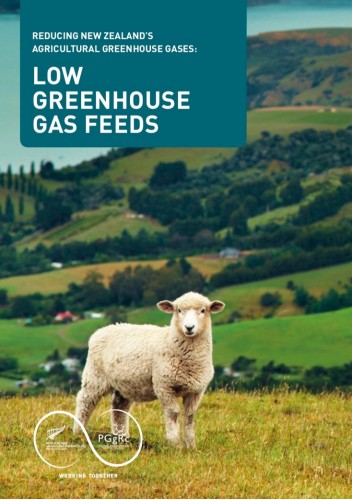YOU ARE WHAT YOU EAT?

Scientists are addressing this question, as part of New Zealand’s commitment to lower its greenhouse gas emissions to internationally agreed targets.
To help people understand of the complexities around reducing agricultural greenhouse gas emissions, the farmer-supported Pastoral Greenhouse Gas Research Consortium (PGgRc) and New Zealand Agricultural Greenhouse Gas Research Centre (NZAGRC) have developed a series of fact sheets, including one on low greenhouse gas emitting feeds.
Seventeen feeds investigated
Nearly 30 studies measuring methane emissions have been carried out on 17 different New Zealand feeds. Alongside pasture, various crops were investigated, including brassicas, chicory, fodder beet, lucerne, maize and clovers.
Two front-runner feed crops
Of all the species studied, only two had noteworthy impacts on methane emissions. Brassica rape was the crop most rigorously tested. Compared to a traditional ryegrass/white clover pasture diet, a 100% brassica rape diet reduced emissions by an average of 30%.
Fodder beet was the other stand out, although its impact on methane emissions was less dramatic and consistent. Trial results to date indicate it can reduce methane emissions by around 20%, but only at when it makes up at least 70% of the diet.
More questions to be answered
A potential issue with both brassica rape and fodder beet is the amount of nitrous oxide emissions created through urine leaching in New Zealand’s typically wet winter soil conditions. Further work is needed to establish if the decreases in methane emissions from these crops are sufficient to off set any increases in nitrous oxide emissions.
Regardless, the research shows that large changes in diet are needed to bring about any significant changes in methane emissions from livestock.
Conclusion: There are no definitive, easy or dramatic ways to reduce emissions through diet alone.
More news articles
